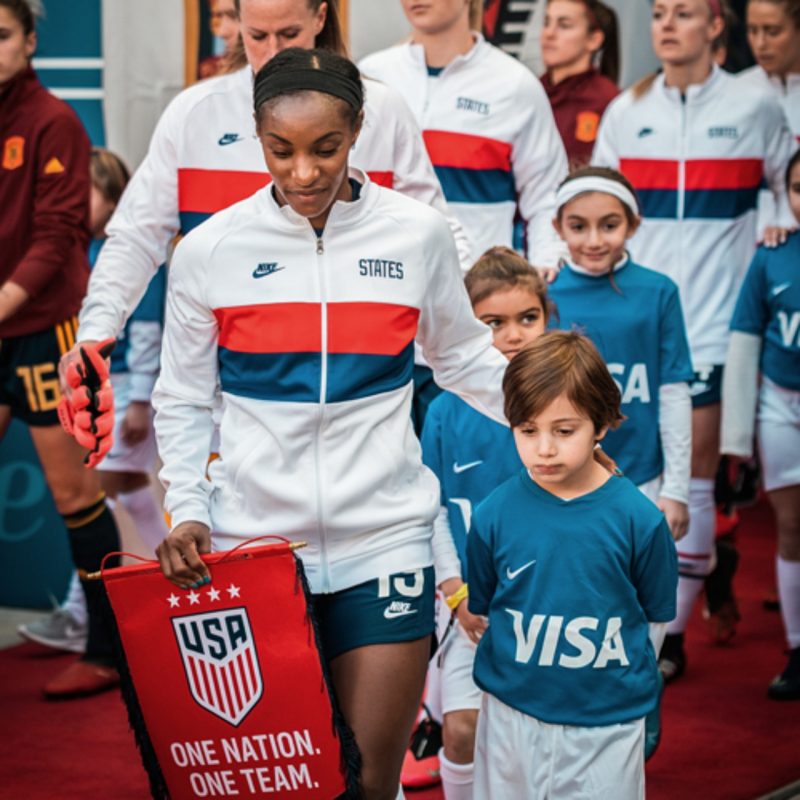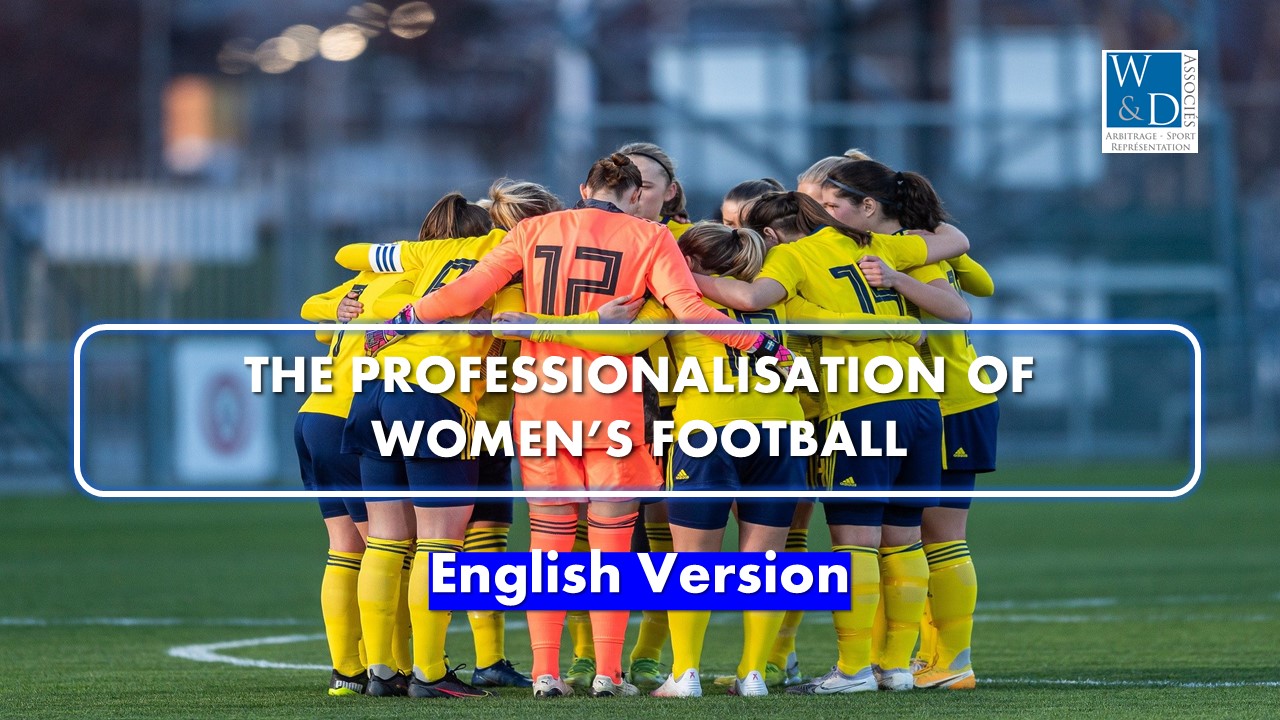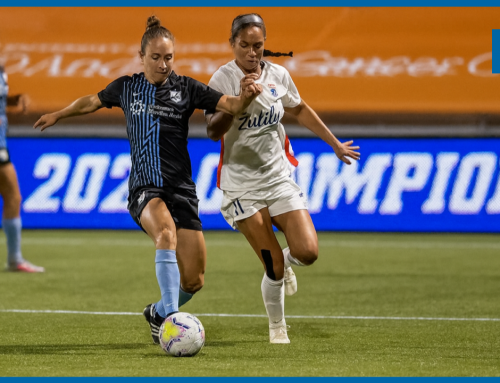Author: Sarah Huchet
Published by Winter – Dávila & Associés in Paris, on november 30th 2021.
Would you like legal advice on sports law? Do not hesitate to contact us!
FIFA’s key role towards a sustainable growth
This article will focus on FIFA’s role in the recent years regarding the professionalisation of women’s football, including its biggest move to date, the implementation of minimum labour conditions for female players.
It is no secret that in the recent years women’s football has become of worldwide interest and is in constant development, bringing in not only new players but also new fans, new medias, new sponsors as well as new stakeholders of all types. The 2019 World Cup having had a huge impact[1], way over the experts’ expectations, the main concern is now how to develop women’s football further and make it sustainable?
It is obvious that the focus cannot only be on one area for growth. Women’s football has to improve in many areas for it to become truly sustainable.
Nevertheless, amongst other key strategies, it is clear that women’s football has to become more professional to attract more players, keep them in the game longer and help them perform to their full abilities, which would bring more fans in, therefore increasing sponsors and medias’ interests which would, consequently, result in more money being invested in the game. It must be seen as a long cycle that begins on the regulatory field, by increasing basic rights of athletes which will have, in fine, a huge impact on the whole women’s football movement.
FIFA, the football international governing body, has already understood the importance of giving the players a more professional environment before the previous World Cup and has been working on it since then.
It must be understood that FIFA plays a key role in this matter as it has the authority to implement rules that will be imposed to every Member Association, instead of having national federations and/or national laws regulating their own leagues and competitions, therefore creating an inequal level of protection and professionalisation of women around the world, which would inevitably prevent women’s football from effectively rising.
Considering the burst of women’s football on the international scene is pretty recent, it is clear that FIFA’s work is not yet enough but first steps are always the hardest ones to take and FIFA will now keep working on the professionalisation of the women’s game, as already exposed with the launch of the Women’s Football Strategy[2] in 2018 or more recently the release of the Women’s Football Administrator Handbook[3] in 2020.
As said, in 2018, prior to the latest World Cup, FIFA had released the Women’s Football Strategy in which it addressed some key points regarding the women’s football professionalisation[4], expressing the need for more regulatory strength and a solidified relationship with key professional football stakeholders. This strategy was based on the following four ideas:
- « Strengthening the transfer matching system to incorporate player transfers in the women’s game.
- Incorporating the club licensing system as a development tool to raise the standards of clubs and leagues and accelerate the development of the game at all levels.
- Develop and issue a regular report on the landscape of women’s professional football in order to closely monitor and foster growth in collaboration with all women’s football stakeholders.
- Create a sharing platform for exchange of expertise and knowledge on the professionalisation of women’s football.»

Photo: pixabay.com
In 2020, going further, FIFA released a handbook to further professionalise women’s football, showing how important this concern is in regards to the women’s football development. According to FIFA, “all full-time female players need a contractual framework that guarantees them a minimum salary and protects them from exploitation”. This handbook recalls the available support for female athletes, mostly contained in the Regulations on the Status and Transfer of Players (RSTP)[5], which is applicable to both male and female players, unless otherwise expressed.
The main principles that deserve to be cited and could be useful for the professionalisation of the women’s game are:
– contractual stability: prevents clubs from unilaterally terminating contracts without just cause and without facing any consequences[6];
– protection of minors[7];
– solidarity contribution: generates revenues for training clubs[8]; and
– the availability of the same dispute resolution system as for men’s football related disputes: ensures the respect of the regulations in force as well as the applicability to female players of the Dispute Resolution Chamber’s decisions, as for example the set of minimum requirements that a player’s contract needs to include in order for it to be valid[9].
Furthermore, the applicability of the International Transfer Matching System to both male and female players is an additional guarantee for female players, as it allows FIFA to enforce adherence to the RSTP and investigate alleged breaches of the said regulations.
Even though FIFA has made available to female professional players most of the male’s existing regulatory framework, this was not enough to allow the women’s game to grow correctly and that’s why, still in 2020, FIFA announced one of the most important reforms to date, the approval of a series of minimum labour conditions for female players[10].
First and foremost, it must be understood that each Member Association has to respect these minimum conditions but is free, however, to offer higher protection.
The new labour framework offers female athletes a maternity leave, defined as a minimum period of 14 weeks’ paid absence, with at least eight weeks after birth, during the term of the professional contract, paid at the equivalent of two thirds of her contracted salary[11].
Whilst pregnant, female players are also protected by FIFA’s new set of regulations that provides them with the right to choose to continue to provide sporting services with regular and independent medical advice, or the right to provide services to their club in an alternate manner, being nonetheless entitled to receive full remuneration. The club has no choice but to respect the player’s decision and formalise a plan for her alternate employment[12].
Once the maternity leave completed, female athletes shall have the right to return to football activity, their club having the obligation to reintegrate them and providing them with ongoing medical support, as well as the opportunity to breastfeed and/or express milk[13].
Lastly, FIFA has decided to provide female players with a strong protection regarding their contractual relationship with their clubs. The unilateral termination of a female player’s contract based on the grounds of her being or becoming pregnant, being on maternity leave or utilising rights related to maternity in general is considered a termination without just cause and is considered an aggravating circumstance which can lead to the obligation to pay compensation as well as to the imposition of sporting sanctions together with an eventual fine. Most importantly, it is presumed that the unilateral termination of a contract during a pregnancy or maternity leave occurred as a result of the player being or becoming pregnant. This is a huge guarantee for female players as it could have appeared difficult for players to prove that the unilateral termination was based on the player’s pregnancy[14].
In order to facilitate the process, clubs are exceptionally allowed to register a player outside of a registration period to temporarily replace a player on maternity leave. The replacement is temporary, with the contract duration going from the date of registration until the day prior to the start of the first registration period after the return of the player who has taken maternity leave, unless otherwise mutually agreed. Furthermore, a player that has completed her period of maternity leave can exceptionally be registered outside the registration period[15].
As expressed above, without a real and concrete professionalisation, the development that women’s football has witnessed in the past few years would be a short-term trend, doomed to disappear but it appears that FIFA has made the women’s game one of its priorities and will keep addressing key matters in order to grow the game in a sustainable way.
If you liked this Sports Law topic, we invite you to share the article, comment on it and also to visit the rest of publications in the social networks and platforms of Winter – Dávila et Associés
Original language of the article
[1] FIFA Women’s Wolrd Cup France 2019, Global Broadcast and Audience Report, https://digitalhub.fifa.com/m/5fd80f719fbff8e4/original/rvgxekduqpeo1ptbgcng-pdf.pdf
[2] Women’s Football Strategy, 2018, https://digitalhub.fifa.com/m/baafcb84f1b54a8/original/z7w21ghir8jb9tguvbcq-pdf.pdf
[3] Women’s Football Administrator Handbook, 2020, https://digitalhub.fifa.com/m/7a077094dd7d176c/original/nduju6vk2fyr7d8doyu3-pdf.pdf
[4] Women’s Football Strategy, 2018, P.17, https://digitalhub.fifa.com/m/baafcb84f1b54a8/original/z7w21ghir8jb9tguvbcq-pdf.pdf
[5] RSTP, August 2021 Edition, https://digitalhub.fifa.com/m/196c746445c58051/original/Regulations-on-the-Status-and-Transfer-of-Players-August-2021.pdf
[6] RSTP, Chapter IV
[7] RSTP, Chapter VII
[8] RSTP, Chapter VIII
[9] Women’s Football Administrator Handbook, 2020, P.126-127, https://digitalhub.fifa.com/m/7a077094dd7d176c/original/nduju6vk2fyr7d8doyu3-pdf.pdf
[10] Women’s Football Minimum Labour Conditions for Players, 2020, https://digitalhub.fifa.com/m/033101649cc3c480/original/f9cc8eex7qligvxfznbf-pdf.pdf
[11] RSTP, art. 18 §7 and Definitions §30
[12] RSTP, art. 18quater §4 a) and b)
[13] RSTP, art. 18quater §4 d) and §5
[14] RSTP, art 18quater §1 §2 and §3
[15] RSTP, art. 6 §1 a), b) and c)
About the author,

Sarah Huchet :
Sarah holds a degree in Sports Management and Marketing from the University of Northwestern Ohio (USA), a Master’s degree in Business Litigation from the University of Paris 1 – Panthéon Sorbonne (France), and a Master’s degree in Sports Law from the University of Aix-Marseille (France). She has worked as a lawyer at the Civale Law Firm, Naples (Italy), mainly on sports law cases before FIFA and the CAS.
She also published an article in the RDES (Rivista di Diritto ed Economia dello Sport) on FIFA’s RSTP.
She is a holder of the CRFPA and is currently a professional football player with Fiorentina (Italy).
This article was published by Winter – Dávila & Associés, an international law firm based in Paris, in France, represented by lawyers specialized in sports law, corporate law, arbitration and representation.








Leave A Comment